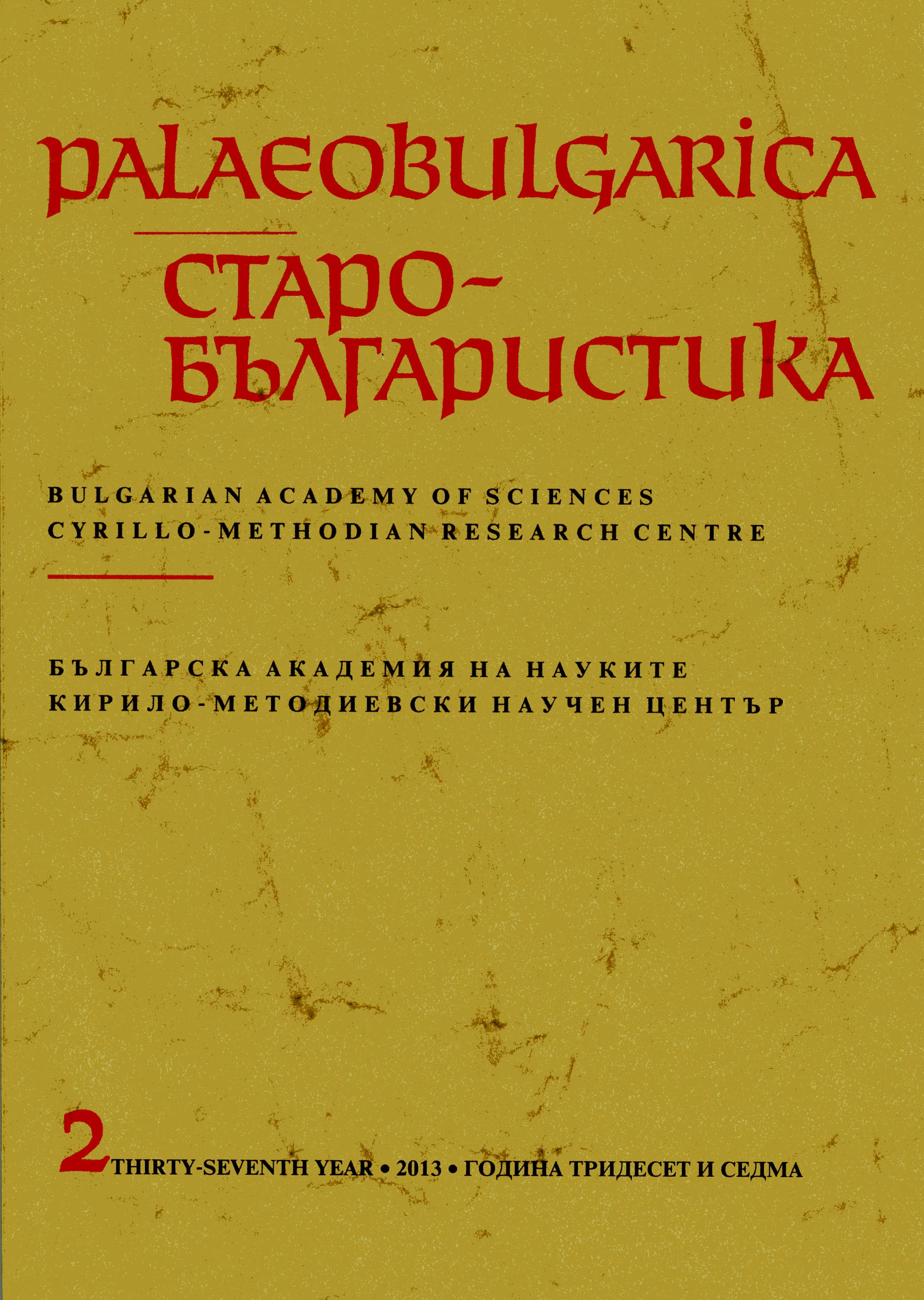Мотивирани съществителни имена със значение на лица в първите две книги на ранния старобългарски превод на Римския патерик
Suffixed Nouns Denoting Persons in the First Two Books of the Old Bulgarian Translation of the Roman Pateri
Author(s): Presiyan BorisovSubject(s): Language and Literature Studies
Published by: Кирило-Методиевски научен център при Българска академия на науките
Summary/Abstract: This paper deals with the derivational nouns denoting persons which occur in the first two books of the Old Bulgarian translation of St. Gregory the Great's Dialogues which are known in the Slavic tradition as Roman Paterikon. These nouns are 70 in number. Each of the 15 suffixes with which they are formed (-никъ, -ьць, -тель, -ица, -ьцьа -ика, -ыка, -таи, -окъ, -оша, -иштъ, -инъ, -чин, -арь, -ыни), is present in the manuscripts of the Old Bulgarian canon. The number of the nouns in each group fully complies with the data of these suffixes in Old Bulgarian manuscripts given by R. Tseytlin (Цейтлин 1977; Цейтлин 1986). It can be concluded that the use of these nouns in the material is a result of the translation process in which priority was given to the meaning and not to the morphemic structure of the words in the source language. Therefore most of the nouns described here are not caiques (with the exception of some two-stem compounds). Almost all the lexical units were probably used in living speech. This also applies to two-stem compounds such as ѩдрописьць and чрьноризица that correspond to single-stem Greek nouns. The material in question does not give grounds for presuming that the Slavonic translator knew the Latin original, as between the Cyrillic and the Latin version there are numerous inconsistencies at the level of syntax and semantics. Fifty-one (73%) of the nouns described here are found in the Old Bulgarian manuscripts, i.e. the degree of matching in this part of the vocabulary between the first two books of the early translation of the Roman Paterikon and the manuscripts of the Old Bulgarian canon is significant. The nouns which also occur in St. Gregory the Great's Forty sermons on the Gospels are fewer (27 or about 39% of all nouns described here), which may be explained by the different places in which the two texts were translated. However, the degree of coincidence is still significant because the original language of the two texts and the author are the same. It should also be noted that almost all the nouns here, occurring in the Sermons, are also found in the Old Bulgarian manuscripts (except only two – градарь and прогонитель ). These data are further proof that the early Slavonic translation of the Dialogues of Gregory the Great originated from one of the literary centers of the First Bulgarian Empire. An attempt to clarify the question of the specific place of origin of this translation will be the subject of further study.
Journal: PALAEOBULGARICA / СТАРОБЪЛГАРИСТИКА
- Issue Year: 2013
- Issue No: 2
- Page Range: 79-96
- Page Count: 18
- Language: Bulgarian
- Content File-PDF

